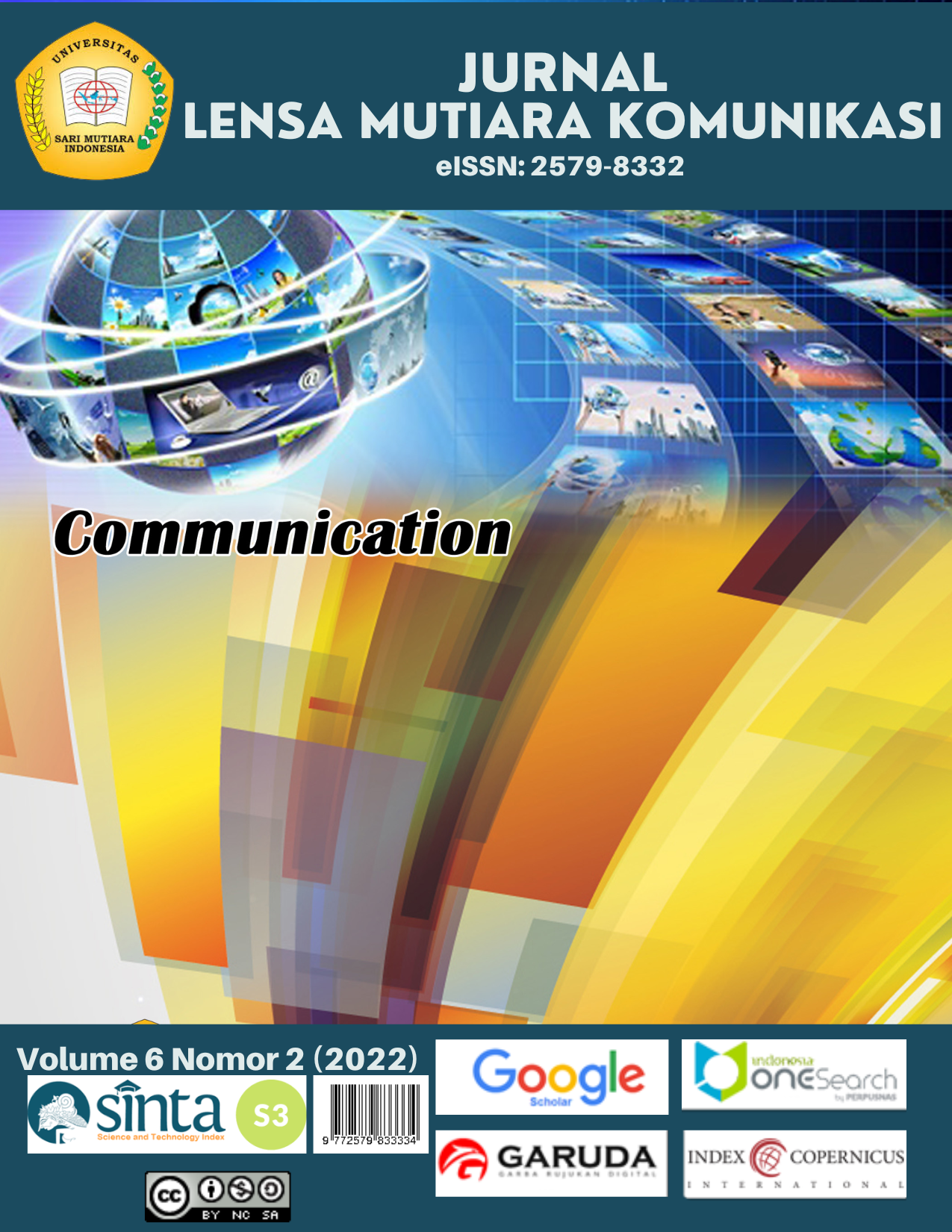Diplomasi Indonesia Di Tengah Persaingan Amerika Serikat dan Cina
DOI:
https://doi.org/10.51544/jlmk.v6i2.2621Keywords:
Persaingan AS-China, Laut China Selatan, Keseimbangan DinamisAbstract
There are concerns that make attention in reclamation construction in the South China Sea. Apart from that, the divisions in the field of trade, competition in the context of geopolitics and technology that occurred in the two countries, the United States (US) and China, were considered to be the triggers for the arrival of a new Cold War. The background to the conflict between the two is a form of open and strategic competition carried out in order to obtain the label of the best country in the 21st century. US-China relations were originally in the form of a cooperative framework which then shifted into a strategic and open battle. China considers that the US prioritizes resilience over all the advantages it already has, but now it has begun to decline. Meanwhile, the US considers that China is increasingly terrorizing security, making noise over the prosperity of its citizens, hindering people's values and the value of egoism. From the point of view of the Indonesian state, the crisis in US-China relations needs to be managed through the concept of dynamic equilibrium in order to safeguard its national interests. The research uses a descriptive exploratory type of research method (Mas'oed, 1994:68), which will examine the impact of competition between the US and China on Indonesia's diplomacy strategy. This paper analyzes the increasing US-China competition and its impact on Indonesia's diplomatic strategy. The US-China tensions were caused by a struggle between the two over the goal of becoming the number one strongest figure in the world. The US, which has long been known as a super power country, feels its position is being threatened by the new emerging power China. Countries in the ASEAN region, including Indonesia, as a middle power country, should improve their diplomatic strategies and consider their position. The countries in the region are trying to balance and "play" under the affairs of a number of great power countries.
Downloads
References
Andika, M. T., & Aisyah, A. N. (2017). Analisis Politik Luar Negeri Indonesia-China di Era Presiden Joko Widodo: Benturan Kepentingan Ekonomi dan Kedaulatan? Indonesian Perspective, 2(2), 161. https://doi.org/10.14710/ip.v2i2.18477
Aulia, Luki., (2021) Negara-negara G-7 Tandingi Proyek Infrastruktur China, Harian Kompas, 13 Juni 2021.
Cassidy, Fikry., Samosir, Partogi J.P., Oktarossa, Debbi., Prasetyo, Erry Wahyu., Nugroho, Faiz Ahmad., Fitri, Widya., dan Putro, Robertus Aji., (2016). Diplomasi Poros Maritim: Keamanan Maritim dalam Perspektif Politik Luar Negeri, Pusat Pengkajian dan Pengembangan Kebijakan Pada Organisasi Internasional Badan Pengkajian dan Pengembangan Kebijakan Kementerian Luar Negeri.
Codevilla, A., & Seabury, P. (2006). War: Ends and Means. New York: Potomac Books.
Dupont, Alan. (2020). The US-China Cold War Has Already Started, The Diplomat, 6 Juli 2020.
Gill, B., Goh, E., & Huang, C.-H. (2016). The Dynamics of US-China-Southeast Asia Relations. Sydney: The United States Studies Center at the University of Sydney.
Goh, E. (2008). Great Powers and Hierarchical Order in Southeast Asia Analyzing Regional Security Strategies. International Security, 32(3), 113–157.
Hadiwinata, B. S. (2017). Studi dan Teori Hubungan Internasional: Arus Utama, Alternatif, dan Reflektivis. Jakarta: Yayasan Pustaka Obor Indonesia.
Hamilton-Hart, N., & McRae, D. (2015). Indonesia: Balancing the United States and China, Aiming for Independence. United States Studies Centre at the University of Sydney, (November), 1–35.
Judith, Paschalia (2021). RI Ambil Peluang di Tengah Tensi Perseteruan AS-China, Harian Kompas 17 April 2021.
Kompas (2021), ASEAN, China, dan Laut China Selatan, Tajuk Rencana Harian Kompas, 9 Juni 2021.
Kompas (2021), Diplomasi Aktif Indonesia, Tajuk Rencana Harian Kompas, 12 Agustus 2021.
Kurniawan, Yudha. (2011), Kontribusi Indonesia dalam Penyelesaian Konflik Laut China Selatan, Paper ini dipresentasikan pada Konvensi Nasional Asosiasi Ilmu Hubungan Internasional Indonesia (AIHII) II, Bandung, 2011.
Mas'oed, Mohtar, 1994. Ilmu Hubungan Internasional Disiplin dan Metodologi. Yogyakarta: LP3ES
Murphy, A. M. (2010). US Rapprochement with Indonesia: From Problem State to Partner. Contemporary Southeast Asia, 32(3), 362. https://doi.org/10.1355/cs32-3c
Nuechterlein, D. E. (1976). National Interests and Foreign Policy: A Conceptual Framework for Analysis and Decision-Making. British Journal of International Studies, 2(3), 246–266. https://doi.org/10.1017/S0260210500116729
Poling, G. B. (2013). Dynamic Equilibrium: Indonesia’s Blueprint for a 21st Century Asia Pacific. Tersedia di https://www.csis.org/analysis/dynamic-equilibrium-indonesia%E2%80%99s-blueprint-21st-century-asia-pacific
Odgaard, L. (2007). The Balance of Power in Asia-Pacific Security: US-China Policies on Regional Order. London and New York: Routledge.
Rizki, Rahmat Miftahul. & Agussalim, Rahmat Miftahul. (2016) Konsepsi Dynamic Equilibrium Sebagai Antikulasi Politik Luar Negeri Indonesia di Asia Pasifik, Yogyakarta: Departemen Ilmu Hubungan Internasional Fakultas Ilmu Sosial dan Ilmu Politik Universitas Gadjah Mada.
Sorongan, Tommy., (2021), China Murka! Kapal Perang AS Berlayar di Laut China Selatan, CNBC Indonesia 21 May 2021 21:12. Tersedia di https://www.cnbcindonesia.com/news/20210521201139-4-247503/china-murka-kapal-perang-as-berlayar-di-laut-china-selatan
Vaughn, B. (2011). Indonesia: Domestic politics, Strategic Dynamics, and American Interests. Asian Economic and Political Issues, 1–38.
Wangke, Humphrey. 2020. Ketegangan Hubungan As-China dan Dampaknya Terhadap Indonesia, Info Singkat Kajian Singkat Terhadap Isu Aktual dan Strategis, Vol. XII, No. 15/I/Puslit/Agustus/2020.
Internet:
BBCNews Indonesia (2012), ASEAN gagal sepakati pernyataan akhir, BBCNews Indonesia, diunduh pada 2 Agustus 2021, tersedia di https://www.bbc.com/indonesia/dunia/2012/07/120713_aseanfail
U.S. Department of State. (2020). U.S. Relations with Indonesia. Tersedia di https://www.state.gov/u-s-relations-with-indonesia/
Utomo, Ardi Priyatno (2021). AS Desak WHO Transparan soal Investigasi Asal-usul Covid-19 Kompas.com - 26/05/2021, 11:33 WIB, tersedia di https://www.kompas.com/global/read/2021/05/26/113316070/as-desak-who-transparan-soal-investigasi-asal-usul-covid-19
Downloads
Published
How to Cite
Issue
Section
License
Copyright (c) 2022 Hilda Yunita Wono, M. Masad Masrur, Kirana Ratu Sekar Kedaton, Muh. Rifqy Hasbullah

This work is licensed under a Creative Commons Attribution-NonCommercial-ShareAlike 4.0 International License.

















